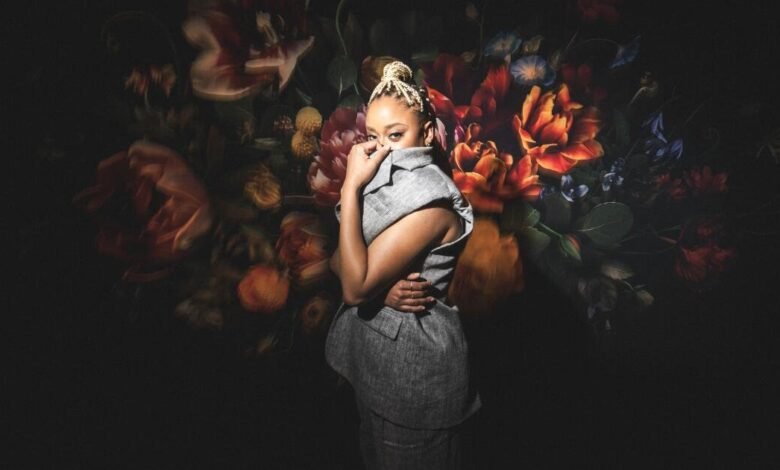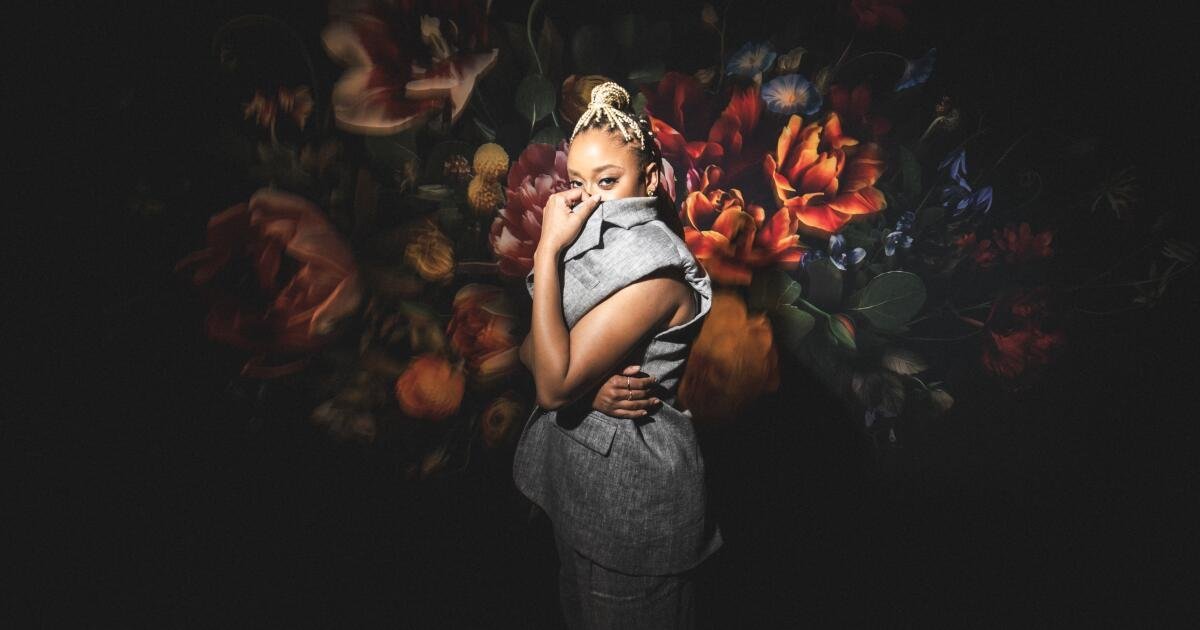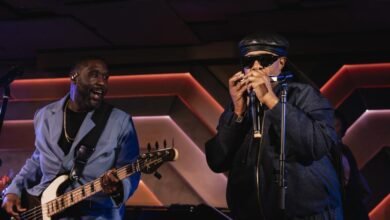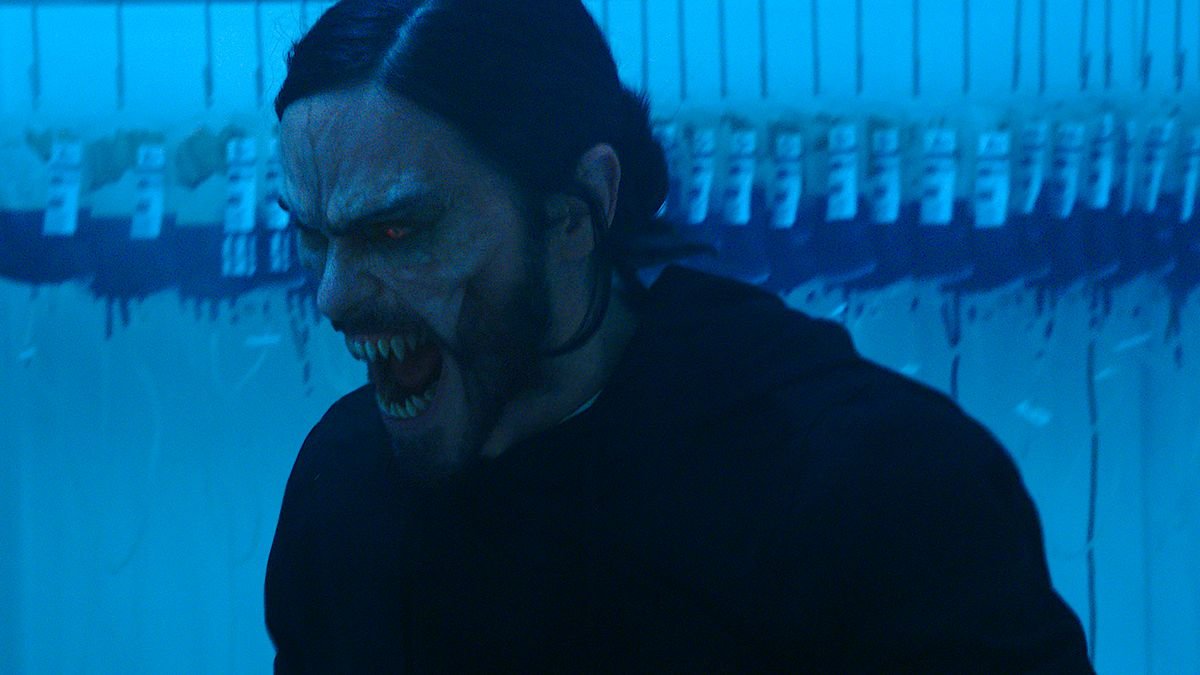Phoebe Robinson Is Done Being A Girl Boss. But She Has Another Comedy Special For You


uaetodaynews.com — Phoebe Robinson is done being a girl boss. But she has another comedy special for you
Phoebe Robinson could see the potential appeal of being with a 72-year-old man. Not really, but kind of.
It was a casual semi-joke she made to a friend months ago when her schedule was chaotic between traveling, moving to a new apartment, writing and more. An older wealthy man could be her ticket to the promised land of ease, away from the deadlines and demands of work. Her friend called her crazy but Robinson, 41, realized she was onto new material to explore for her stand-up stage.
“I think this notion of women becoming these girl bosses and having all this sort of financial independence and autonomy, we were told that this was going to set us free, and this was going to make us the happiest we’ve ever been,” Robinson said. “I just really wanted to analyze, is just working all the time and achieving and having success, is that really the thing that’s going to set people free?”
In Robinson’s new comedy special “I Don’t Want To Work Anymore”, which premiered Tuesday on YouTubeshe muses about the adventures of the modern day working woman, aging, the horniness of the 40s, sugar daddy aspirations and why women shouldn’t be called gold diggers.
Robinson, who got her start in stand-up in 2008, has always juggled a myriad of projects that has constantly made people laugh at not only her outrageous laugh out loud punchlines but also her honesty and confidence. Besides stand-up, Robinson also was the co-creator and co-star of the podcast turned HBO series “2 Dope Queens” with Jessica Williams alongside other podcasts including “Sooo Many White Guys” and “Black Frasier.” In 2019, Phoebe launched Tiny Reparations, a production company whose first series “Doing the Most with Phoebe Robinson,” premiered April 2021 on Comedy Central. In 2021, Robinson also published her third book of essays “Please Don’t Sit on My Bed in Your Outside Clothes,” the inaugural title from her imprint, Tiny Reparations Books, which works to champion writers of color. Her debut hour comedy special, Sorry, Harriet Tubman, premiered October 2021 on HBO Max.
The Times caught up with Robinson about her stand-up special, how she’s trying to get away from the internet’s obsession with content creation, breaking free from being a girl boss and what male comedians can do to make their jokes about sex funnier.
Who are you now as a stand-up comedian compared to when you started?
I started out sort of trying to find my confidence as a person, as a performer, as a writer, as a joke teller, sort of needing to prove to myself that I was worthy. I think now with the age that I am, and my approach to stand up is just I don’t need that sort of validation from stand-up. I think my relationship to comedy it’s more about the craft and sort of figuring out how to take an idea from something that’s in my head to something that’s funny, rather than it being like, if I make people laugh that’s a bonus in terms of my character. I stand up in a much more confident way, in a much more calm way.
Coming up where it’s like, ‘you have to kill’, ‘every show has to be great,’ I go, that’s actually the antithesis of creating anything. A sculptor doesn’t go into it like, this has to be the best fucking face I’ve ever done that’s not how you approach anything creatively. You go in with it being I want to do this. There are going to be happy accidents along the way.
What has helped you let go of that search for validation?
You get to a point where you’re like this is all a bunch of straight white guys. I’m never going to be them. I’m never going to have their full acceptance. So what does it look like if I just accept myself? How will my stand up comedy be? How will I enjoy this process? Because for a long time, I didn’t really enjoy doing stand up. I was just always dreading every time I got on stage, because it’s dealing with misogyny and the nonsense and all this other stuff that is truly getting in the way of this is a really cool job. I get to get on stage and make people laugh, be this joy spreader, and then I’m dealing with all these other things that have nothing to do with what I’m here to do.
I can either do this thing that doesn’t really bring me joy in the way that I’m doing it, or I can figure out what works for me and create my own path. And nobody has to understand what my path is like. I’m just trying to be doing something that I enjoy, as opposed to it being this misery filled sort of thing, or a thing where it’s so contingent on fitting in with everyone else. I don’t fit in with everyone else, and that’s okay.
What made it important to talk about girl bossdom in this moment?
I think we are at a place where it seems like even when we’re trying to be less girl boss and take more time for yourself and more self care, it’s like that’s such a business now too. Everything just has this tinge of capitalism on it, without any actual substance to it in a lot of ways. I feel like with this special I don’t provide the answers, because I think the answer is different for everybody. They have decided for themselves. But I think it’s just let’s sort of unpack these things that we all sort of just blindly went along with like everyone’s on the ground everyone’s hustling. I also just am as we’re going into whatever we’re in right now, whatever this is, I have no idea what we are living in.
I am holding on for dear life, like I’m in the trenches with everyone. I think it’s good to stop and and ask these questions, or just stop and think. I think that’s one of the things I don’t love about content all the time. It’s just constant distraction, little something on our faces, so that we’re not ever actually dealing with anything, contemplating anything, being with ourselves. It’s just all a desperate need to avoid. And I go maybe avoiding is not the best. Maybe being a girl boss is not the best.
I feel like this has been happening more since the most recent election cycle where you see more Black women talking about how they’re trying to rest. How do you see that playing out in your life right now?
I think rest is very important. I think we’re living in a world that everything is so content driven, which I just hate the word content. We are not content. We are not just here to vomit and produce stuff. Even the notion of every year you have to have a new hour, you have to have a new special, what the fuck are we talking about every year? Every year is it gonna be good? Every year, you’re not even giving yourself time to really hone in on stuff. And sometimes you can see with specials where you’re like, ‘yeah, if this person had maybe three more months, it would have been funnier.’ We’re not even experiencing what we’re creating. We’re not even enjoying the process, because it’s just the end result.
I know I’m slower than other people, but I don’t care. When you think about sometimes, music artists, take like five years off between albums, –– not that I can take five years off –– and then they come back with something that’s phenomenal. They probably would not have been able to get to that place if every year they’re putting out an album. I really just try to come from I want to create things that I’m proud of, that I think are funny and not fall victim to I have to be in that cycle of constantly pumping stuff out regardless of how good the quality is.
How do you want to see comedy change over time?
I would want comedians to really admit and cop to the power that we do have in terms of the cultural. I think a lot of comics try to have it both ways. We’re like, oh, I’m just a dumb clown and I don’t mean anything. And then, like, you know, certainly creating work for audiences that’s going to get you ahead, and that is also sort of perpetuating ideas and ideology that’s not great, that’s toxic, that is destructive, that is unhealthy. I think the first step is sort of like changing this landscape of comedy a little bit. It’s sort of just like taking ownership over this is the role that we play in things societally, and we get to choose the things that we want to talk about.
And so when there’s this sort of like, Oh, it’s just words. I go, your whole job is words. That’s your currency. You choose each and every word to elicit a reaction. So let’s just own that.
What does breaking free from being a girl boss look like in practice?
I think not having this sort of internal kind of anxiety of I have to say yes to everything. I think I have learned to push some of the noise away in order to have clarity, in order to be able to really think about what I want to do mindfully. I love a good bed rot. I love a day of just staying in bed watching TV, not opening the blinds, or going for a walk with a friend or reading a book, or doing marathon running. Not being a girl boss has allowed me to have a fuller life, which I think is great, not only for my own personal happiness, but it does also then inform my work and the way that I approach it, and how it’s coming from not a stressful place, but a place of this is but one part of my life.
I think it’s just allowed me to have more boundaries.
You talked about how women have to oscillate between trying to be likable and lovable. How do you see your comedy pushing back against those narratives?
People don’t love women in front of a microphone so that right there. These are very well formed thoughts but if you think it’s not, it’s nonsense or noise, that’s fine. I’m in a place where I just don’t care about being liked because I like myself and a lot of people don’t like themselves. So if I’m contingent on people who don’t like themselves to then be able to like me, I’m going to be in a world of just chaos and nonsense. I really just got to a place where I gotta be okay with me. I gotta like Phoebe when I’m out on stage, when I’m at home, and I’m just farting in bed, and trying to find something to watch on TV, or I got zits popping up on my face.
I think obviously the likability and the lovability is a trap for women almost always. When you see that so much of female likeability within society is based on how we can make ourselves smaller or not be as great as we are I’m just like, screw that.
What do you think is the difference between the way male comedians talk about sex versus the way female comedians are talking about sex?
Most of them, I’m like, oh, you’ve never, probably authentically made a woman come and that’s why you’re making that joke, because it makes zero fucking sense what you just said. They’re like, ‘women are so hard to figure out.’ I’m like, just go down on us for like, 30 minutes. Just do a solid 30, 35 minutes, and you’ll be fine. They like to act like we’re so mysterious. Have you ever asked a woman what she likes in bed? Do you listen when she says, I don’t like that? Just get educated about the female anatomy. Prioritize female pleasure. Understand that it’s not a race to you getting your penis inside of a hole, but that sex is both people, not just a thing that’s done to women.
I think the material would be different from men if they bothered to care at all about our sexuality.
Disclaimer: This news article has been republished exactly as it appeared on its original source, without any modification.
We do not take any responsibility for its content, which remains solely the responsibility of the original publisher.
Disclaimer: This news article has been republished exactly as it appeared on its original source, without any modification.
We do not take any responsibility for its content, which remains solely the responsibility of the original publisher.
Author: uaetodaynews
Published on: 2025-10-10 19:26:00
Source: uaetodaynews.com



